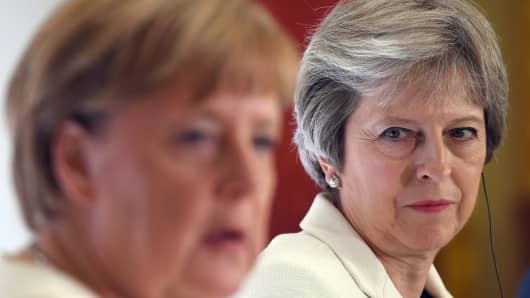Germany got its next comeuppance in Italy. Rome finally summoned the courage to say "basta!" (enough!), after being left alone for years to handle thousands of African and Middle-Eastern migrants and refugees landing on its shores. Berlin's only response to Italian appeals for European solidarity was to criticize Rome for refusing to honor the maritime traffic laws and to secure people in danger.
To get back at Italy for refusing to follow Germany's diktat on immigration policies, Berlin led the assault, with its French sidekicks, on Italy's attempts to rescue its sinking economy with fiscal policies that were well within the euro-area budget rules.
Germany and its EU Commission now got exactly what they wanted: The Italian economy sank into recession late last year, and will probably remain there for most of 2019.
The story is not over, though. Italy is now teaming up with Hungary and Poland to create an anti-German and anti-French block, with unpredictable consequences for the EU's future.
All that is happening at a time when France is split by a violent and deepening social unrest — some conservative French thinkers call a "civil war," in a country prone to "violence" and "revolutions." The government has no answer to three months of demonstrations and rioting of a social movement dubbed "yellow vests." Watching an increasingly violent police warfare, the French governing elites are organizing town hall discussions, apparently believing that they can wear down, and wait out, their opponents.
But, as things now stand, there seems no end to the French political crisis. Last Saturday, for example, about 60,000 people demonstrated and rioted in all major French cities, confronted by 80,000 police in lethal combat gear.
For the time being, the French government is hanging on thanks to massive police operations and the fact that the rioting social groups have neither the leadership nor the programs that would offer viable alternatives for the transition of power in the quasi-imperial presidential system of the Fifth Republic.
By comparison, a weak and disoriented German government looks like a paragon of stability. The governing coalition forces can't wait to see Merkel's back, the right-of-center CDU/CSU sister parties are still settling their differences, and their hapless Socialist (SPD) partners are looking for a major leadership change.
And everybody is waiting to see what political forces will emerge from the European parliamentary elections in late May. The event is billed as a decisive showdown between established and highly contested governing circles, and what are derisively called "populist" demagogues and illiberal democracies.




